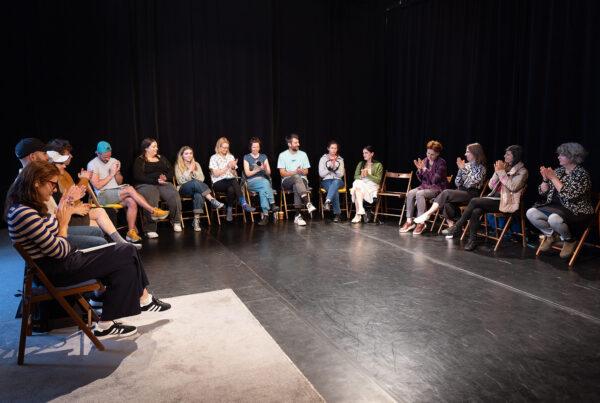Written by Rob Weinert-Kendt
Originally published at American Theatre
What drives the folks who keep theatres running, and how do they learn their trade? Funny you should ask.
It is said that we all hate lawyers until we need one. Most folks in the arts don’t hate arts administrators, by any means, but I’ve definitely heard my share of puzzled conversations among artists about what a managing or development director actually does all day. The implication—sometimes not just implied but impolitically stated—seems to be that the money spent recruiting and sustaining good managers would be better spent just giving money directly to artists.
Of course, I’ve heard some of these same puzzled folks have what they seem to think is a separate conversation about the need for stronger institutional support for artists, from marketing to prep/rehearsal time to human-resources staff to handle backstage conflicts or misconduct. Who do they think is supposed to handle those matters, exactly? This cognitive dissonance reminds me a bit of the way some of my fellow Americans pair a reflexive distaste for “Big Government bureaucracy” with a sense of grievance about long waits at the post office and long hold times on the phone to state agencies.
In case my feelings aren’t clear here, I count myself in awe of the hardy souls who do the thankless jobs of balancing budgets, liaising with boards, and keeping stage doors open. For all the bravery and sacrifice of the playwrights, actors, and designers who put their work and their bodies onstage, I’ve met plenty of theatre administrators whose fierce dedication matches and in some cases even surpasses that of the artists whose work they make materially possible, and whose aptitude for their work can be understood as a talent just as surely as can be a composer’s gift for melody or a writer’s ear for dialogue.
Also like artists, administrators shape and hone their talents over years of experience, trial and error, and in many cases formal training. In this special issue we look appreciatively not only at the work of administrators but also at the way they prepare for it and pass their wisdom along to others. In a time of uncertainty rooted not so much in a shaky economy as in existential dread of environmental collapse and social regression, we need artists to help us make sense of the world, to shine a light on the just and unjust, as much or more than ever. And to do that essential work, we need smart, forward-looking people to make sure those lights stay on.



